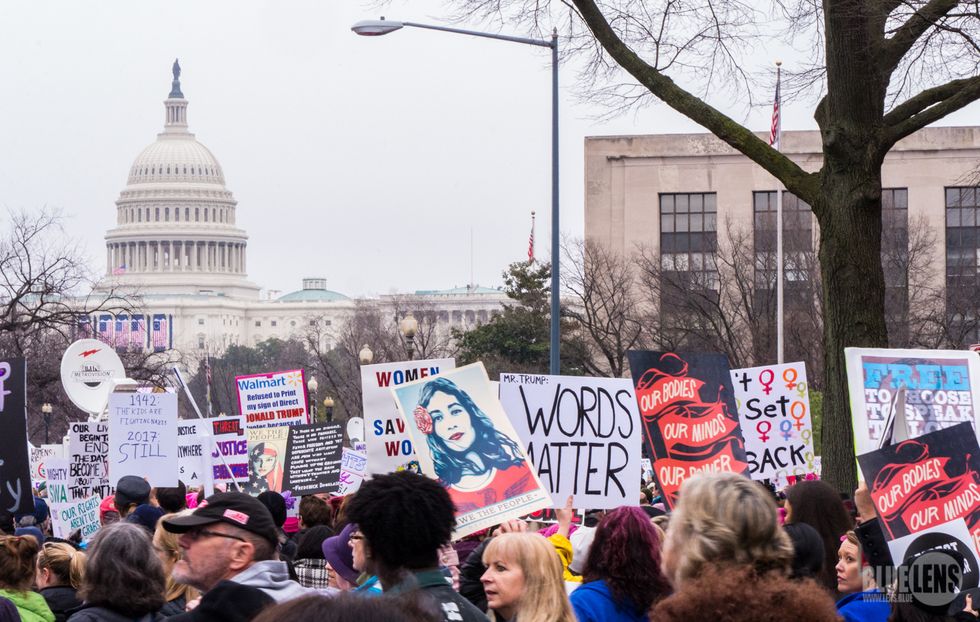As social movements gain traction and begin to leak into mainstream media, people become more informed about the issues at the root of these movements.
However, in advocating against police brutality, or bringing down domestic violence rates, one population is continually ignored in these dialogues. Aside from a brief stint in the spotlight during the protests against the Dakota Access Pipeline, Natives and their struggles are largely ignored by not only the general population but also most social movements themselves.
Native Americans have the highest rates of sexual assault, rape and domestic violence of any other minority.
Yet, this population was completely glossed over when Time’s Up and #MeToo hit mainstream media. In these movements, an emphasis is placed on female empowerment and calling out assault, but the most at-risk population is completely ignored. In a similar vein, Natives have some of the highest rates of incarceration, despite the fact they only make up around 1% of the US population.
And yet, in spite of these abysmal rates, Natives are left out of the dialogue when conversations challenging the justice system in the name of racial equality roll around.
This blatant exclusion is disheartening considering the fact that these movements are meant to affect change, but don’t even acknowledge populations where change is needed most. Yes, social movements are typically inclusive ones, but little progress is made through them without addressing individual problems within them. This isn’t the pain Olympics and this article isn’t meant to divert attention away from the fact other populations are also at risk; it’s simply an act of ensuring this race of people isn’t forgotten like they have been throughout history.
So I ask: why? Why is this race of people left out of the conversation when it comes to issues that hit them the hardest? Well, part of it is pure numbers. Native drug and alcohol counselor, Stephen DeLucchi, stated: “Our numbers are so small. There’s only so many voices that come along with that, and the sound only gets so loud.” Comprising only about 2% of the entire world population, many just tend to forget about this race of people and the struggles they face.
Part of the problem also simply stems from ignorance.
People don’t know that this population is still here. Native writer and filmmaker, Anthony Florez, thinks part of that is due to representation. “A lot of exposure is gained through entertainment. But Natives are the most underrepresented population, which means that modern movements, contemporary lifestyles aren’t depicted. We’re not the people [that] people think of.”
Native populations are too often depicted as mascots or caricatures. These depictions are dehumanizing and further an already present disconnect of how people view this race of people. These narrow forms of representation make it easy for people to forget this population is still present and makes it hard to keep them in mind when discussing social issues.
In a similar vein, often times Natives are likely removed from conversations on social justice because they are seemingly separated from the rest of the population.
Many Indigenous people live on Reservations. These Reservations are essentially self-governed and have the capacity to make and enforce laws that differ from federal and state laws. Perhaps social justice commentary is not as inclusive of Natives due to the fact that many members of this race exist under a completely different government and way of life than the rest of the world, making their social issues seem like a different beast entirely.
Overall, there is likely more than meets the eye when pondering why Indigenous peoples are left out of social movements. Delving into why, however, is for the sake of explanation, not excusal. The idea of inclusivity in these movements needs to be expanded in a way that encompasses all races and ethnicities, not just those with larger demographics. Natives have been a forgotten people throughout all of history, but the buck stops here.
Stephen DeLucchi stated, “There’s not enough people getting pissed about it so it doesn’t matter. If the minority is small enough, no one is listening. Unless you have more people joining.”
So join in. Get pissed. Bring attention, and be aware. Speak up, and speak out. And most of all, listen. Seek out Native voices, and stories; learn what there is to know, understand ways in which you can help, and fight to make social movements more inclusive.
















